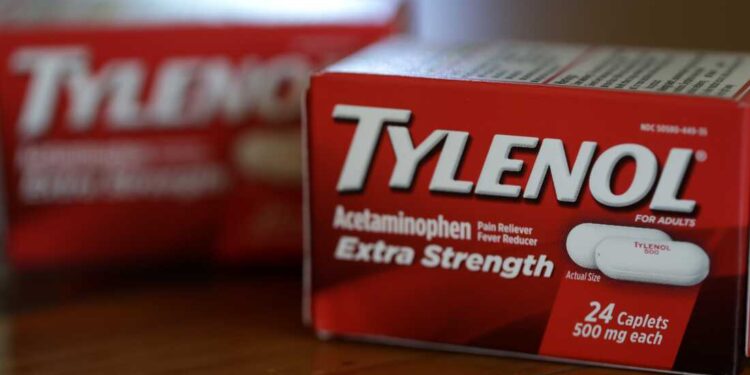Healthcare professionals are pushing back against President Trump’s Monday announcement discouraging pregnant women from using Tylenol due to alleged autism risks, with leading medical organizations maintaining the medication’s safety profile during pregnancy.
“So, taking Tylenol is, uh, not good. All right, I’ll say it. It’s not good,” Trump stated during a White House autism event. “For this reason, they are strongly recommending that women limit Tylenol use during pregnancy unless medically necessary.”
The announcement, flanked by Health Secretary Robert F. Kennedy Jr. and Dr. Mehmet Oz, declared that the FDA would notify physicians about potential associations between acetaminophen use during pregnancy and increased autism risk.
Dr. Marty Makary, FDA commissioner, announced approval initiatives for leucovorin as an autism treatment, claiming it addresses folate receptor issues in the brain. “Hundreds of thousands of kids, in my opinion, will benefit,” Makary said, though he provided limited supporting evidence.
Trump characterized autism as a “crisis,” citing increasing diagnosis rates from 1 in 150 children in 2000 to current CDC figures showing 1 in 31 children (3.2%) identified with autism spectrum disorder.
Medical experts strongly disputed the administration’s position. Dr. Steven Fleischman, president of the American College of Obstetricians and Gynecologists, called suggestions linking Tylenol use to autism “not only highly concerning to clinicians but also irresponsible when considering the harmful and confusing message they send to pregnant patients.”
Dr. Kathleen Borchardt, an obstetrician at Houston Methodist, emphasized Tylenol’s safety for pregnant women. “I want pregnant women to feel comfortable taking Tylenol if they need it,” Borchardt said, noting she heard no new studies or data changes in the White House announcement.
Borchardt highlighted risks of untreated fever during pregnancy, including miscarriage, birth defects, and neural tube defects. “The risk of untreated fever can lead to miscarriage and birth defects,” she explained, noting that ibuprofen isn’t a safe alternative to acetaminophen during pregnancy.
Christine Ladd-Acosta, an autism researcher at Johns Hopkins Bloomberg School of Public Health, attributed rising autism rates to “broadened diagnostic definitions, better screening and increased awareness” rather than environmental causes.
The Autism Society of America expressed deep concern about the announcement, stating that “premature claims like the association with acetaminophen risk retraumatizing autistic individuals and families, stigmatizing mothers, and diverting attention from what truly matters.”
The organization emphasized that autism results from “a combination of genetic, biological, and environmental factors” with no single identified cause or cure after decades of research.
Autism Speaks acknowledged some observational studies suggesting possible Tylenol associations but noted that “studies have not proven causation.” The organization called for larger, well-controlled clinical trials regarding leucovorin treatment.
Regarding the leucovorin treatment promoted by Makary, both autism organizations emphasized the preliminary nature of current research and need for additional study to confirm efficacy and safety.
Borchardt warned the announcement could “create fear in pregnant women and lead to unintended consequences,” particularly given the extensive list of precautions already required during pregnancy, including avoiding undercooked foods, high-mercury fish, alcohol, and maintaining temperature regulation.
The medical community’s response reflects broader concerns about evidence-based healthcare policy and the potential for administrative announcements to contradict established clinical guidelines without sufficient scientific support.







